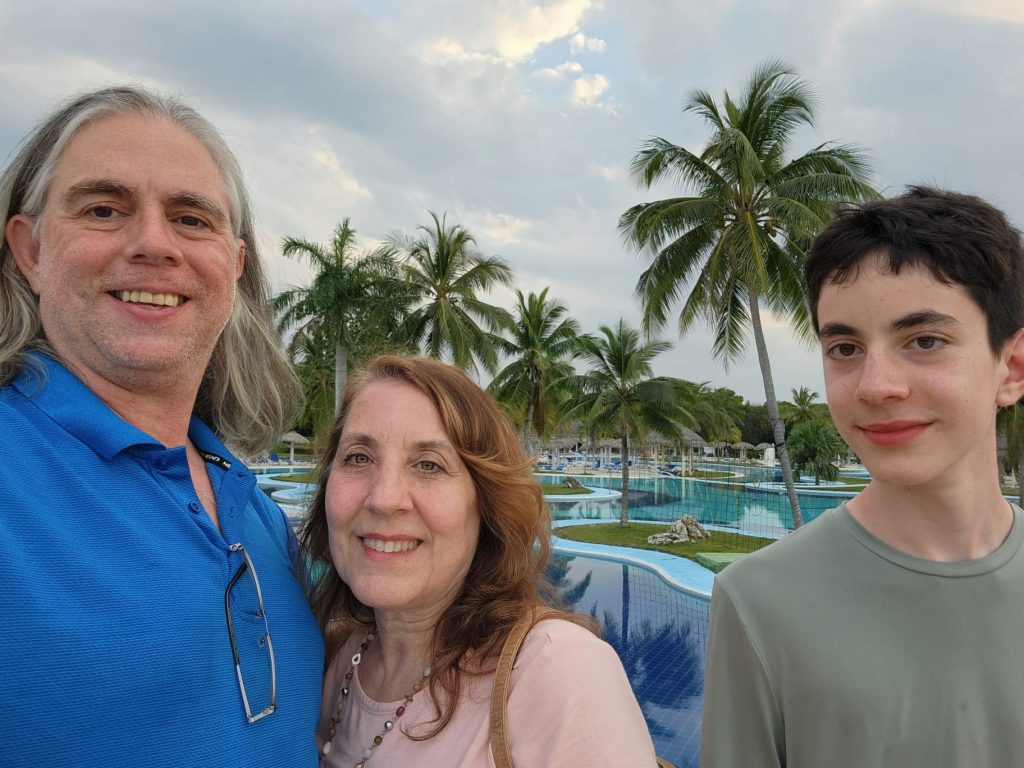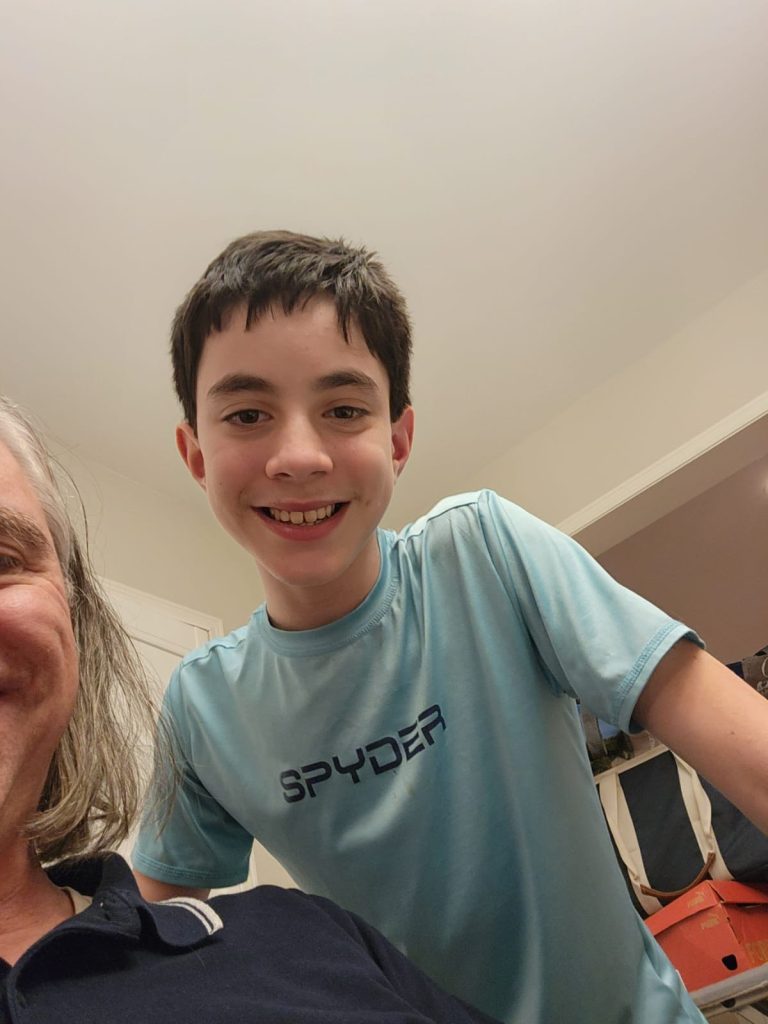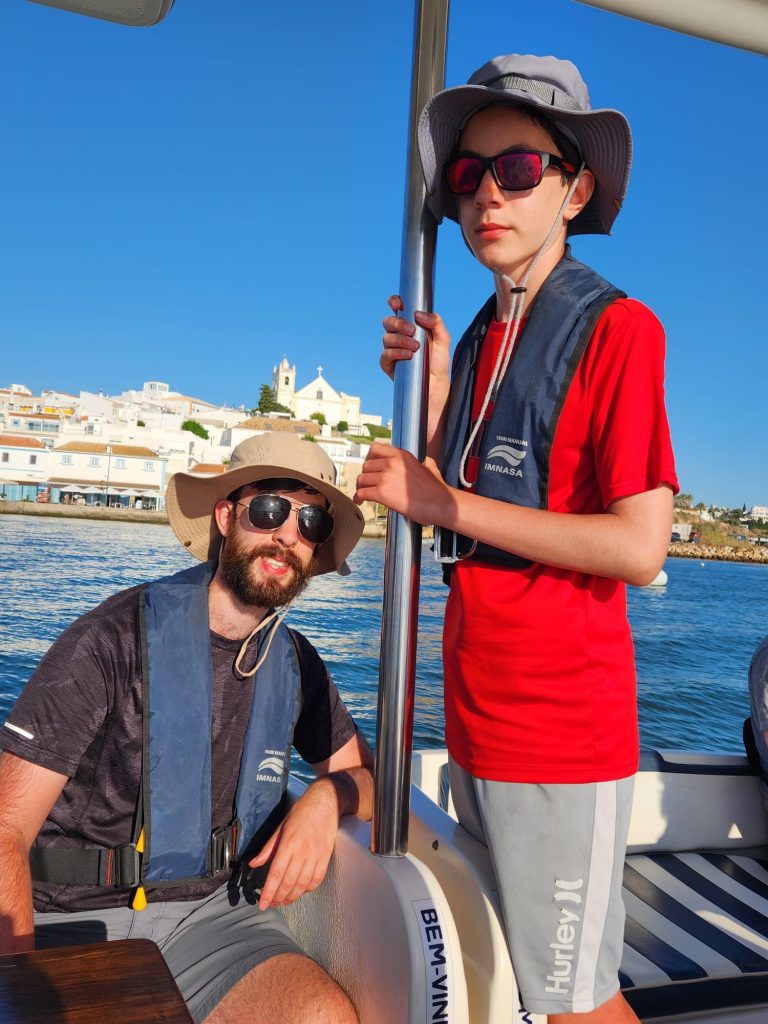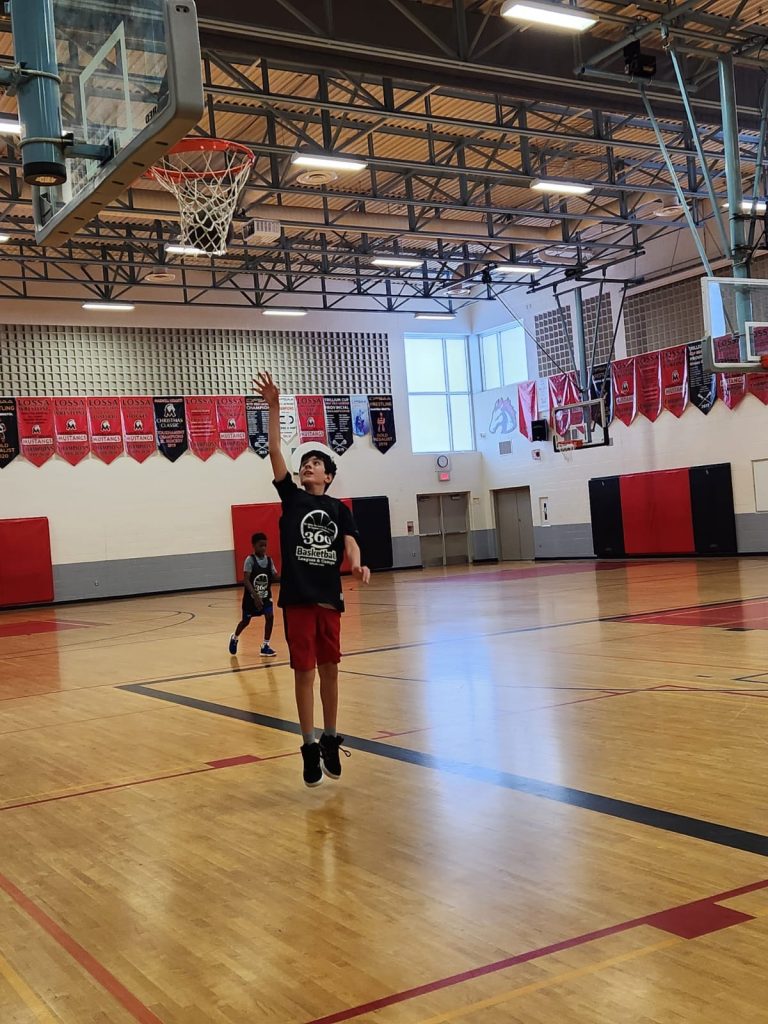Dana and her husband, Peter, describe their family of four as one tied together by steadfast care and support. 14-year-old Leo’s big brother, who is 11 years his senior and a stepson to Dana, does not live with them full-time, but is a constant, loving presence. Despite the age gap, he remains an attentive sibling who delights in Leo’s victories, large and small. Three grandparents, two on his father’s side and Dana’s mother, complete Leo’s support network. They attend every lesson, skill-building class and new interest that captures Leo’s imagination. Whether it be swimming, basketball or skating, they are there, cheering and learning alongside him.

Leo’s Grandview Kids journey began as a toddler. Educators in his daycare noticed he was not progressing in speech at the same pace as his peers and expressed concerns about his limited eye contact and lack of response to his name. By age four, after an assessment at Grandview Kids, Leo was diagnosed with autism spectrum disorder (ASD). Dana still remembers the swirl of terminology, questions and fears that followed. She recalls standing in her in-laws’ house, watching Leo linger under the ceiling fan and stim by flapping his arms, yet still feeling surprised when the diagnosis confirmation arrived.
After years of navigating infertility, Leo was a miracle to Dana and Peter. This diagnosis did not leave them as distraught and hopeless as they expected, knowing that their task at hand was to figure out how to best help Leo. “The more knowledge you have, the better,” she says. “It’s not good to be in the dark. Knowledge lets you make things better.” Peter approached the diagnosis with characteristic determination, eager to understand every possible resource. He uses a Lord of the Rings metaphor to describe their parental role: “Aragorn walks toward the throne, but Legolas and Gimli clear the way.” Their job, he said, was to clear Leo’s path of as many impediments as possible.
The early years were filled with daunting decisions. Choosing classroom placements, reading psychometric reports, worrying about labels and balancing accommodations and expectations. Dana’s mantra for herself, and now for other parents and caregivers, became clear: “You will make the best decisions you can with the information you have. And you can always adapt as you go. Give yourself grace.”

Dana describes Grandview Kids not merely as a service provider, but as a lifeline. After receiving the diagnosis, Leo underwent hearing assessments, speech therapy and then ABA-based social skills training. Occupational therapy followed as the school identified fine-motor challenges. Over time, programs shifted based on Leo’s needs and interests, ranging from Lego groups to summer literacy groups to, eventually, a “Typing Without Tears” keyboarding program, which became essential during pandemic learning. Grandview Kids always encouraged revision, guiding his parents to ask, “What does Leo need most right now?” and the family learned to recalibrate continuously.
Dana recalls the moment she walked into Grandview Kids’ old Oshawa headquarters for the first time. She had expected to have to travel to downtown Toronto for specialized services. Instead, she found “warmth at every layer” from the staff, the digital floor signage, the mini library and even the receptionist who made families feel seen. “It felt like resource heaven,” she says. “I felt enormous relief that Grandview was here. It became my life raft.”
In addition to support from Grandview Kids, family vacations, especially trips to the Caribbean, have been transformative for Leo. The new environments, unfamiliar routines and diverse social encounters have broadened his comfort in these settings and expanded his interests in sports and the outdoors.

Travel, Dana notes, has quietly expanded his world. Leo’s personality has also blossomed over time. Once a brooding, withdrawn child who rarely engaged, he gradually developed a sense of humour, sparked by books like Captain Underpants and carefully curated YouTube videos. Today, he is outdoorsy, active and mischievously funny. “You never know what the trigger is,” Dana reflects when learning to lean into Leo’s interests. “A teacher, a YouTuber, a book – someone uncovers a new part of him.”
Over the years, the defining feature of Dana and Peter’s approach has been adaptive parenting as they closely listen to Leo’s emerging interests, concerns and strengths, especially when he cannot articulate them fully. When he became concerned about physical abilities, they leaned into his newfound love of sports. When his writing challenges became overwhelming, they shifted toward technology solutions. When social supports were needed, they prioritized therapy groups, camps and friendships.
“You have to be flexible and rethink your approach as a parent,” Dana says. “Between mental and physical health, we’ve had so many balls to juggle. We do our best not to drop anything.” As Leo began high school this year, she reminds herself and others that perfect parenting does not exist. “As long as kids know they’re loved, it’s okay.”

Today, Dana advocates for families like hers by sharing knowledge freely. “If I’ve learned something that helped us,” she says, “why not help another parent find that information sooner?” She imagines a community of ongoing learners, a network where insights, resources and support flow in every direction.
For Dana, International Day for People with Disabilities is a vital moment to amplify these perspectives. “My son is a living example of the goodness that disabilities bring to our society,” she says. “Disabled people teach us how they are differently abled. They teach society to appreciate and enjoy differences because along the way, there are beautiful surprises.”
What Dana wishes the community understood about children and youth with disabilities is simple but profound: “Be open. Be open to discovering what disabled people can teach you. Be open to ways of thinking and challenge the usual pace of the world. Be open to having enough patience and empathy to perceive the world through someone else’s lens.”
As Leo steps into adolescence with confidence, humour and growing independence, Dana and Peter see the future not as a fixed destination but as a shared path, one that families, professionals and communities must continually clear together. Disability is not a limitation to be managed but a different way of existing to be understood, supported and celebrated.
Dana Colarusso hosts a podcast called “Autistic, Beyond the Label,” a platform that invites parents, caregivers and families with autistic children and youth to engage in continuous learning and to share knowledge, information and resources freely.’
Check out more Grandview Kids articles
- Celebrating Ahaana: Finding sound, strength and community on Cochlear Implant Day
- Navigating the intersection of disability and race as a caregiver: Honouring Black History Month
- Embracing hope through every challenge: Brock’s journey
- Jack’s resilience shines through every step: Rare Disease Day
- February: Dates of Significance
